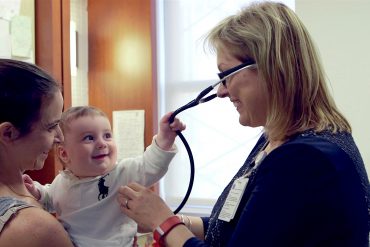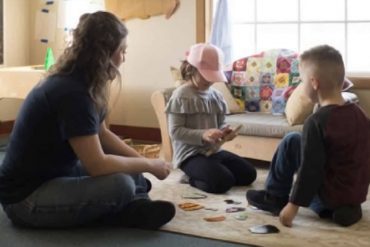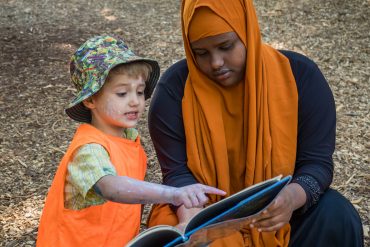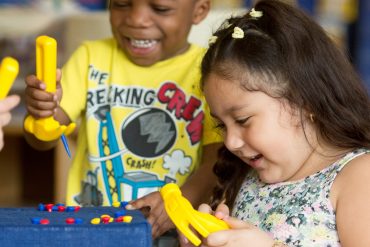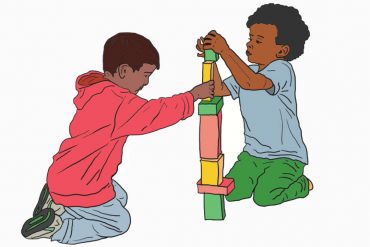Happy Spring! Your spring fever is kicking in, you’ve got a ton on your plate and pollen is already making...
New York City’s Mount Sinai Hospital is one of the nation’s oldest and largest teaching hospitals. They're upping their early childhoold development game with an online curriculum that demonstrates how pediatric residents can promote brain development and help strengthen parent-child relationships within the confines of routine well-child visits
Infants and young children are rarely at the forefront of state and national policy agendas. For the good of the nation and the future of our world, they should be.
“What this study is asking is whether or not, as a matter of public policy, is it a straightforward way to achieve the important goal of early childhood development.” -- Matt Klein, executive director, New York City Mayor's Office for Economic Opportunity
Legislation that includes what an early childhood advocacy group says is an “historic investment in early childhood” has been signed...
Trauma, chaos and unrelenting stress can overwhelm anyone’s ability to nurture. For incarcerated parents, these hardships often have been a...
When the Pritzker Children’s Initiative (PCI) launched a first-of-its-kind Prenatal-to-Age Three State Grant Competition late last year, 42 of 45...
Mobilizing Communities So All Children Make the Grade
Pop Up Neighbor events, community, collaboration, mobilization
Even without advance promotion, when word got out that the SuperMatt Laundromat in Sarasota, Florida, was offering free laundry all day, neighborhood residents formed a steady stream of customers.
Not only was laundry-and-all-the-fixings free—a boon to low-income families who can ill afford the $35 to $50 a week they spend trying to keep their kids in clean clothes—the food bank was there with abundant food to restock their pantries.
Best of all, there were books—lots of books—and plenty of volunteers to read to children while the adults did as many loads of laundry as needed. When the children left, books went home with them.
Throughout most of human history and in most of the world, that paradigm of children playing outdoors as a part of childhood has been so integral as to be transparent. Not so in the U.S., where, according to the Child Mind Institute, the average American child spends four to seven minutes a day in unstructured play outdoors and more than seven hours a day in front of a screen. Washington State is changing that.
The children attending Tiny Trees Preschool classrooms in Seattle and King County parks may look like they’re “just playing,” but those little boots are actually marching, climbing, stomping and squishing their way to a well-rounded preschool education.
What would happen if we prioritized children’s potential? That’s the question implicitly asked and explicitly answered in the recent paper...
Did you hear the one about the marine biologist who walked into a neuroscience lab? The University of Washington’s Institute...



